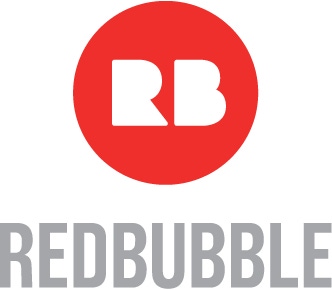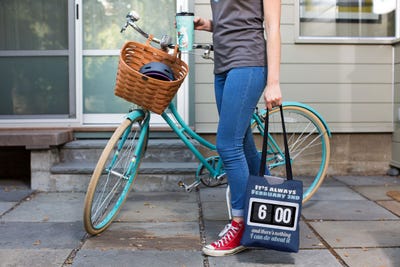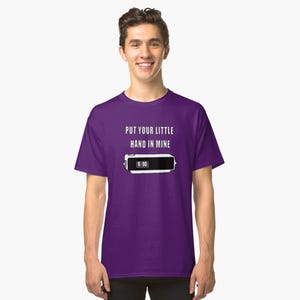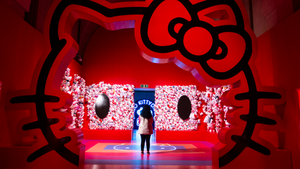GLOBAL–RedBubble is one of the largest print-on-demand marketplaces in the world, but is it villain or hero to the world of licensing? That depends on who you ask, but the answer might not be what you think.
April 6, 2018

Redbubble is one of the largest POD marketplaces in the world, but is it villain or hero to the world of licensing? That depends on who you ask, but the answer might not be what you think.
 GLOBAL–The rise of online print-on-demand marketplaces has given fans a wholly new outlet for their passion, but this can be challenging for IP owners, traditional retailers and even licensees who feel suddenly cut out of the process.
GLOBAL–The rise of online print-on-demand marketplaces has given fans a wholly new outlet for their passion, but this can be challenging for IP owners, traditional retailers and even licensees who feel suddenly cut out of the process.
A frequent lightening rod for this conflict has been Redbubble, one of the largest online marketplaces, of any kind, in the world. The platform features the work of more than 600,000 independent artists from around the world and boasts millions of users every month. And it’s been quite a hit–the company reported $35.3 million in profit in the first half of fiscal 2018 (which includes holiday sales), a 24.7 percent increase over the same period last year.
The sheer scale of the platform and the exponential growth it has experienced in its 11 years of existence, speaks volumes about the demand for the service, and that is exactly what Redbubble considers itself–a service. Not a retailer, not a content creator, not even a licensee. Designs are created and sold by independent artists on product created by a network of third-party print-on-demand suppliers around the world–Redbubble’s role is to serve as the conduit for these exchanges.
“Redbubble as a marketplace is not the retailer. The actual, independent artist is the retailer. They are the seller in this case–they choose what they want to sell, how they want to sell it, and we provide the service of connecting them with third parties to fulfill and ship the product,” explains Eric Morse, SVP of partnerships and general manager of global licensing, Redbubble. “Ultimately, why we’re here, why I’m here, is to support and grow independent artists and art around the world. Fan art is an important piece of that, given how much it has proliferated over the years.”
|
|
“There is a real misunderstandingamong some in the licensingindustry about Redbubbleencouraging pirated designs.It is actually quite the opposite.We have over 200 ongoingrelationships with rights holdersto actively police our sitefor their properties.”– Eric Morse, SVP of partnerships and general manager of global licensing, Redbubble |
|
But the arena of (often) un-licensed fan art has been the sticking point for the licensing industry.
“For the last few years, marketplaces have really been driving innovation within the consumer space. Think about YouTube as a marketplace, eBay, Etsy. Think of how much creativity has come from these platforms. You can even think of Comic-Con as a marketplace in a more physical space. You go down Artist’s Alley, it’s the perfect example of a marketplace. And think about how beautiful, how different and innovative some of those designs are. It’s really clever stuff that you wouldn’t necessarily see in a style guide.”
Of course, the issue for the licensing industry is that these designs don’t appear in any style guides. Rights owners don’t have the same control over their brand as they do in other spaces, and traditional retailers and licensees can often feel that by following the rules, they are missing out on innovative, appealing brand creative.
But Redbubble is highly sensitive to the role it plays within the licensing community. Case in point–the recent hiring of Morse, a 20-year veteran of the licensing industry who has previously worked for Hasbro, Sesame Workshop and Spencer’s.
“They brought me on a couple months ago because they realized that as a service provider, there are more services that we can provide to more people, and by that I mean to licensors or rights holders,” explains Morse. “They had done their research, and they knew there was an opportunity to engage across more facets of the business and partner with the licensing community to better control and manage IP on Redbubble, as well as fight ongoing criminal fraud from scaled abusers."
Redbubble has actually been working with licensors behind the scenes for years to handle infringement issues surrounding fan art, but Morse’s hiring signals a new era for the platform in its effort to offer a forum for the passion of fans that doesn’t conflict with the work of brand owners.
In fact, Morse will be taking part in a session at the NYC Licensing Summit next week on Feb. 20 to address this very topic head on.
“One of the reasons I really wanted to talk to the industry at the NYC Summit, is because there is a real misunderstanding among some in the licensing industry about Redbubble encouraging pirated designs. It's actually quite the opposite. We have over 200 ongoing agreements with rights holders to actively police our site for their properties . There are over 2,000 brands that we are monitoring on a daily, weekly or monthly basis, depending on what their requirements are,” says Morse. “We can't make assumptions about who holds rights for various reasons, but as soon as a licensors or rights holders tell us ‘Hey, that’s mine–I need you to take that down,’ it’s not a debate, it just comes down, within 24 hours. If the artist feels that they’re wronged, there’s an entire process the law outlines, and we manage all of that for the licensors and rights holders who work with us. More often than not ,the reaction that we get from the lawyers that work with our legal team is very positive, because we are very responsive and proactive.”
And beyond Redbubble’s ongoing, daily efforts to protect IP owners, Morse and his team (which also now includes another licensing veteran, Cynthia Money) are also working to connect brand owners to the process.
 Earlier this month, Redbubble rolled out a program with Sony Pictures Entertainment featuring the classic film Groundhog Day, that highlights the unique opportunity the platform presents to brand owners.
Earlier this month, Redbubble rolled out a program with Sony Pictures Entertainment featuring the classic film Groundhog Day, that highlights the unique opportunity the platform presents to brand owners.
“Sony has an incredibly deep and meaningful vault of great classic films. In this case, the film Groundhog Day was having an anniversary. Groundhog Day, the holiday, is not a traditionally merchandisable day, but because our platform offers a 100 percent on-demand model, you can do these really fun, interesting, engaging extensions. There are so many Groundhog Day fans, and this allowed Sony to reach those fans in a really fun, intimate way,” says Morse. “Sony is a very forward-thinking company, and they embrace the opportunity to reach and engage their fans on properties that maybe they wouldn’t think about having a traditional merchandising program for.”
For the Groundhog Day 25th anniversary program, artists from across Redbubble’s community created fan art inspired by the classic film. Sony reviewed all the submissions before anything went live and had the chance to nix designs that “didn’t meet the muster.” And Sony has the right to take down designs, even those that they’ve already approved, at any time.
“Offering artistic, new products based on Groundhog Day is part of the experience we want to create, and the Redbubble platform provides a way to share something new and instantly with movie fans,” says Jamie Stevens, EVP Worldwide Consumer Products, Sony Pictures Entertainment.
Morse is already at work on several other similar programs with other brands, and his larger message to the licensing industry is clear:
“You have options. We are here to partner and support both your fan engagement as well as fighting piracy and protecting your IP online. We have the tools, teams and expertise so you don’t just have to grin and bear it,” he says. “If you are a rights holder, and you’ve found something of yours on Redbubble that is not licensed, you tell us what you want us to do, and as a service provider, we can work together to resolve the problem. It's really just that simple.”
Don’t miss the exclusive opportunity to hear from Eric Morse directly and ask him your questions at the NYC Licensing Summit, taking place in Times Square Feb. 20. For more information and to register, click here. But hurry, because the event is almost sold out.
You May Also Like






